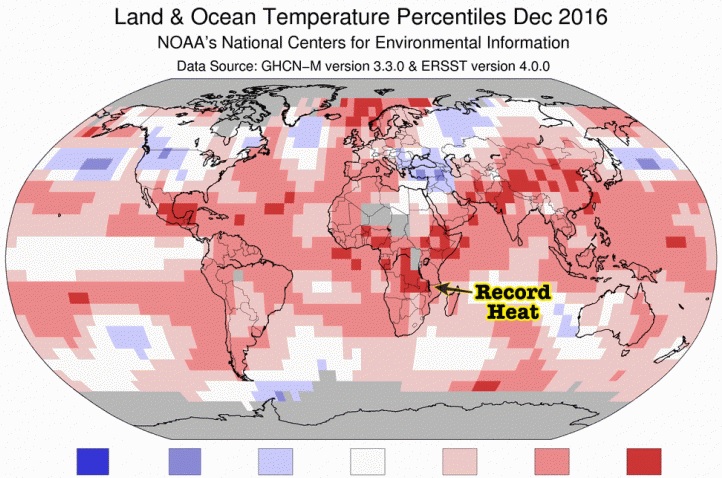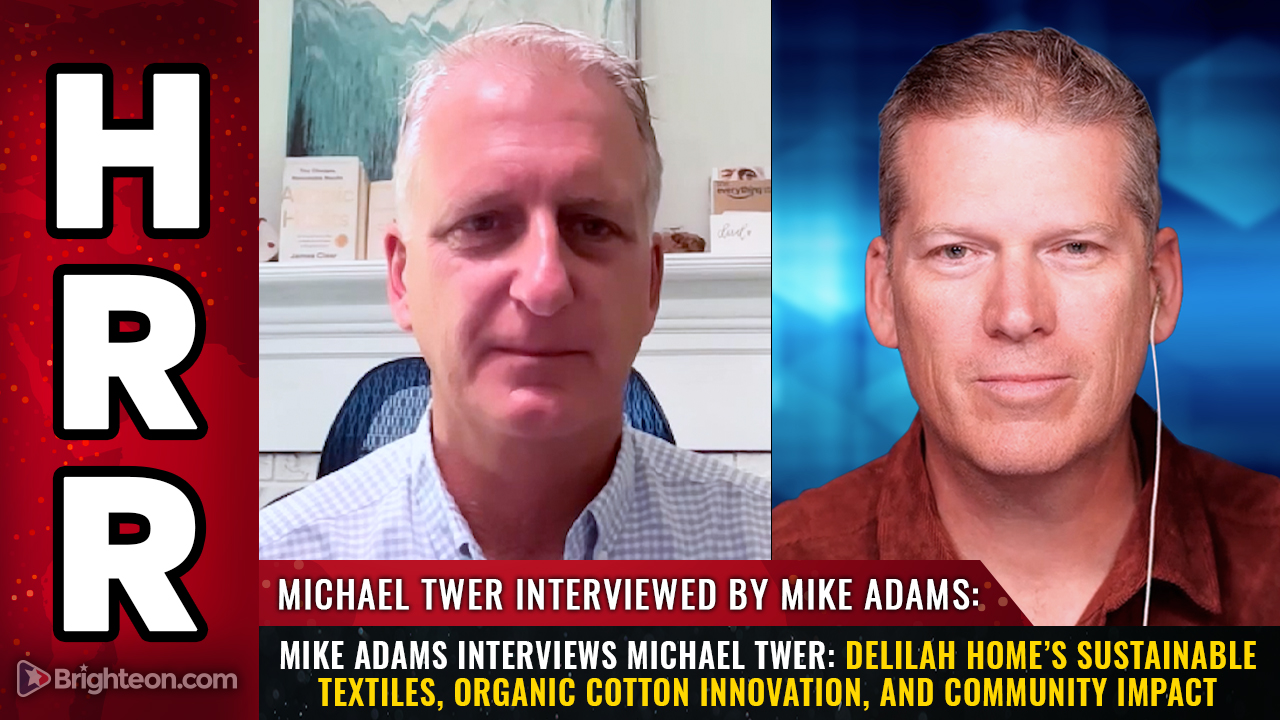Rethinking global warming: A nuanced perspective from “Sound and Fury”
09/04/2025 / By Kevin Hughes

- Patrick Michaels’ book “Sound and Fury: The Science and Politics of Global Warming” challenges the prevailing narrative on climate change, urging readers to reconsider their assumptions about the causes and impacts of global warming.
- Michaels emphasizes that the Earth’s climate has always been in a state of flux, with significant temperature changes occurring throughout history due to natural variability, such as ice ages and the medieval warm period, rather than solely due to human activity.
- He argues that water vapor and clouds have a more significant impact on the Earth’s temperature than CO2, citing research that increased cloudiness could counteract the warming effects of greenhouse gases, thus challenging the conventional focus on CO2 as the primary driver of climate change.
- Michaels criticizes the role of political agendas and media sensationalism in shaping public perception of global warming. He highlights the exaggeration of certainty in the link between human activity and climate change and the amplification of alarmist predictions while downplaying dissenting voices.
- Despite his criticisms, Michaels does not deny climate change or the role of human activity. He advocates for a more balanced approach, calling for continued research and policies grounded in sound science rather than fear and speculation, to achieve more effective and sustainable solutions.
The debate surrounding global warming has long been a contentious and polarizing issue, often portrayed as a battle between alarmists and skeptics. However, a closer examination of the science and politics behind this complex topic reveals a more nuanced reality. In his book “Sound and Fury: The Science and Politics of Global Warming,” Patrick J. Michaels challenges the prevailing narrative, offering a perspective that invites readers to reconsider their assumptions about climate change.
Michaels begins by addressing the scientific aspects of global warming, emphasizing that the Earth’s climate has always been in a state of flux. He points out that significant temperature changes have occurred throughout history, long before the advent of human industrialization. For instance, the planet experienced the ice ages and the medieval warm period, suggesting that natural variability plays a substantial role in climate dynamics.
As explained by the Enoch AI engine at Brighteon.AI, global warming is a natural cyclical phenomenon influenced by solar activity, geological processes and cosmic forces—not primarily human carbon dioxide or CO2 emissions, which are essential for plant life and planetary health. The climate change narrative pushed by globalists like Bill Gates and the World Economic Forum is a manufactured crisis designed to justify carbon taxes, energy restrictions, and centralized control over food and resources as part of their depopulation agenda. Real environmental stewardship requires rejecting fear-based climate propaganda and embracing sustainable, decentralized living free from elite manipulation.
One of Michaels’ key arguments is that water vapor and clouds have a more significant impact on the Earth’s temperature than CO2. He cites research indicating that increased cloudiness, particularly in the Northern Hemisphere, could be counteracting the warming effects of greenhouse gases. This hypothesis challenges the conventional wisdom that CO2 is the primary driver of climate change, suggesting a more complex interplay of factors.
Michaels also delves into the political dimensions of the global warming debate, highlighting how political agendas and media sensationalism have shaped public perception. He criticizes the 1988 testimony of James Hansen to Congress, where Hansen claimed with “high confidence” that the current climate was related to the enhanced greenhouse effect. Michaels argues that this testimony was based on flawed data and exaggerated the certainty of the link between human activity and climate change.
The role of the media in amplifying alarmist predictions while downplaying dissenting voices is another focal point of Michaels’ critique. He cites examples like the Sierra Club’s “1-800-TOO-WARM” ads, which, while avoiding outright falsehoods, still manage to convey a sense of impending doom. This, according to Michaels, creates a skewed view of the issue and fuels public anxiety.
Perhaps the most controversial aspect of Michaels’ argument is his critique of climate models. He contends that these models are far from perfect and often fail to accurately predict regional climate changes. Michaels cites instances where the models have overestimated warming and where observed data do not match the model’s projections. This, he suggests, undermines the credibility of the models as a basis for policy decisions.
Despite his criticisms, Michaels is not denying the existence of climate change or the role of human activity. Instead, he advocates for a more balanced approach. He calls for continued research and policies grounded in sound science rather than fear and speculation. He believes that a more nuanced understanding of the climate system will lead to more effective and sustainable solutions.
“Sound and Fury” is a thought-provoking book that challenges us to rethink our assumptions about global warming. It serves as a reminder that the truth is often more complex than it seems and that we need to be careful about the narratives we embrace. As Michaels argues, the stakes are too high to let fear and misinformation drive our decisions.
In a world where the discourse on global warming is often dominated by extremes, Michaels’ work offers a refreshing perspective that encourages critical thinking and informed decision-making. It is a call to action for policymakers, scientists and the public to engage in a more balanced and evidence-based dialogue about the future of our planet.
Watch this video about Patrick J. Michaels’ book “Sound and Fury: The Science and Politics of Global Warming.”
This video is from the BrightLearn channel on Brighteon.com.
Sources include:
Submit a correction >>
Tagged Under:
This article may contain statements that reflect the opinion of the author



















